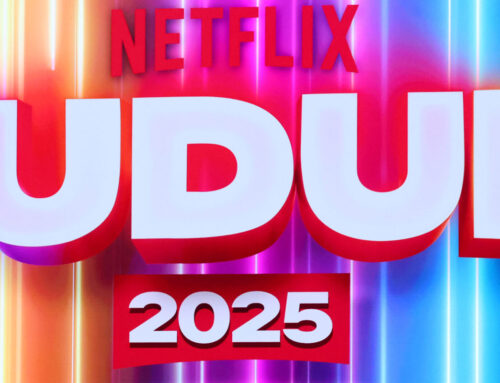Market Meltdown: U.S. Stocks Plummet Amid Global Economic Fears: Is a Recession Inevitable?
U.S. stocks, which plunged at the market open Monday, saw little respite during the session and closed at or near their lows in a major correction. The Dow Jones Industrial Average ended off 1,033 points, down 2.6%. The Nasdaq fell by 3.4%, and the S&P 500 by 3%. Fears of a U.S. recession cascaded across global markets with the DJIA down a whopping 1,200 points premarket, and off more than 1,000 in early trading. A selloff in Japan overnight first set off a drubbing in Asia and Europe, and now Stateside.
Media and high tech shares were pummeled, with red across the board. Warner Bros Discovery was down nearly 8% and the last thing the shaky stock needed was a global market downturn. But declines came across the board the following days, from Disney and Netflix to Apple and Amazon, other broadcasters, exhibitors and social media.
Pressure on stocks started Friday after the Department of Labor’s monthly data showed a rise in U.S. unemployment. That led many to think the Federal Reserve may have waited too long to lower interest rates from 20-year highs, risking tipping the U.S. economy into a recession.
The Fed dashed market hopes at its July meeting, leaving rates unchanged, but signaled that a rate cut is on the way. There’s about 100% certainty among market players that a September cut is coming — of 0.25% — but some fear it may be too late. The central bank slammed rates higher to cool down the economy and counter inflation, but it’s a delicate balance.
The DOL said unemployment rose by 0.2% to 4.3% in July as hiring slowed to 114,000 jobs added during the month – considerably less than anticipated. The information sector took the biggest hits in job losses — including in entertainment and media. Movies and sound recording saw a loss of 3,500 jobs, to 445,400, while publishing industries shed 5,900 positions, to 919,600. Broadcasting and content providers lost 1,600 spots to 338,900.
The Japanese stock market had its worst day since 1987, amid a global market crash called Black Monday. The central bank raised interest rates last week to boost the yen, which could be a drag on corporate profits there. The idea is that in a negative economic climate, Japan could be particularly exposed. So markets fell as players globally were piling out of stocks and into less riskier investments like bonds, with the benchmark 10-year U.S. Treasury yield on pace to settle at its lowest level in more than a year (Bond yields and prices move in opposition directions).
Looking across media: Disney is holding up well comparatively but still down about 1% despite the box office it’s been generating. Netflix, Paramount, Alphabet, Meta and TKO are off by 2%-3%, Apple and Spotify by 5%, AMC Entertainment and Fubo by 6%. Snap, which has been killed since its earnings last week, is down another 8%. It’s generally been a messy time for tech stocks, with the market’s future uncertain, while many companies are investing massive amounts of cash in AI.
Source: Deadline
Share:
U.S. stocks, which plunged at the market open Monday, saw little respite during the session and closed at or near their lows in a major correction. The Dow Jones Industrial Average ended off 1,033 points, down 2.6%. The Nasdaq fell by 3.4%, and the S&P 500 by 3%. Fears of a U.S. recession cascaded across global markets with the DJIA down a whopping 1,200 points premarket, and off more than 1,000 in early trading. A selloff in Japan overnight first set off a drubbing in Asia and Europe, and now Stateside.
Media and high tech shares were pummeled, with red across the board. Warner Bros Discovery was down nearly 8% and the last thing the shaky stock needed was a global market downturn. But declines came across the board the following days, from Disney and Netflix to Apple and Amazon, other broadcasters, exhibitors and social media.
Pressure on stocks started Friday after the Department of Labor’s monthly data showed a rise in U.S. unemployment. That led many to think the Federal Reserve may have waited too long to lower interest rates from 20-year highs, risking tipping the U.S. economy into a recession.
The Fed dashed market hopes at its July meeting, leaving rates unchanged, but signaled that a rate cut is on the way. There’s about 100% certainty among market players that a September cut is coming — of 0.25% — but some fear it may be too late. The central bank slammed rates higher to cool down the economy and counter inflation, but it’s a delicate balance.
The DOL said unemployment rose by 0.2% to 4.3% in July as hiring slowed to 114,000 jobs added during the month – considerably less than anticipated. The information sector took the biggest hits in job losses — including in entertainment and media. Movies and sound recording saw a loss of 3,500 jobs, to 445,400, while publishing industries shed 5,900 positions, to 919,600. Broadcasting and content providers lost 1,600 spots to 338,900.
The Japanese stock market had its worst day since 1987, amid a global market crash called Black Monday. The central bank raised interest rates last week to boost the yen, which could be a drag on corporate profits there. The idea is that in a negative economic climate, Japan could be particularly exposed. So markets fell as players globally were piling out of stocks and into less riskier investments like bonds, with the benchmark 10-year U.S. Treasury yield on pace to settle at its lowest level in more than a year (Bond yields and prices move in opposition directions).
Looking across media: Disney is holding up well comparatively but still down about 1% despite the box office it’s been generating. Netflix, Paramount, Alphabet, Meta and TKO are off by 2%-3%, Apple and Spotify by 5%, AMC Entertainment and Fubo by 6%. Snap, which has been killed since its earnings last week, is down another 8%. It’s generally been a messy time for tech stocks, with the market’s future uncertain, while many companies are investing massive amounts of cash in AI.
Source: Deadline









